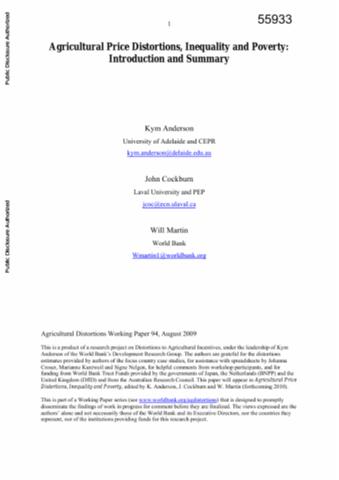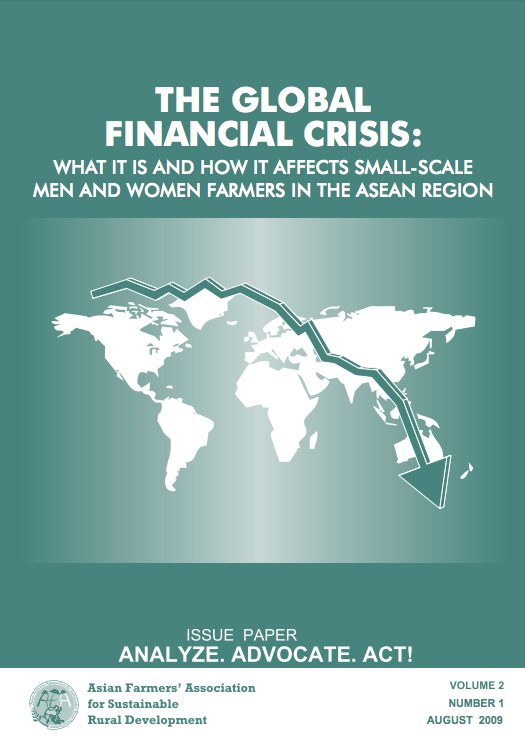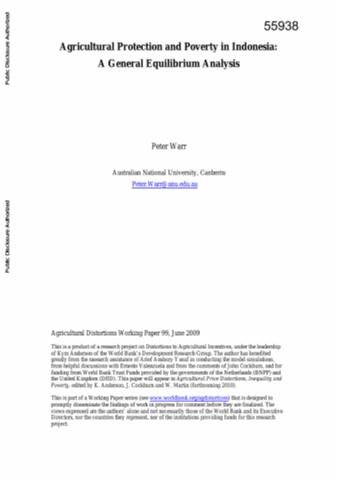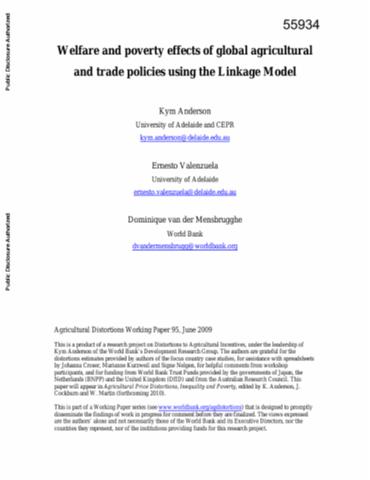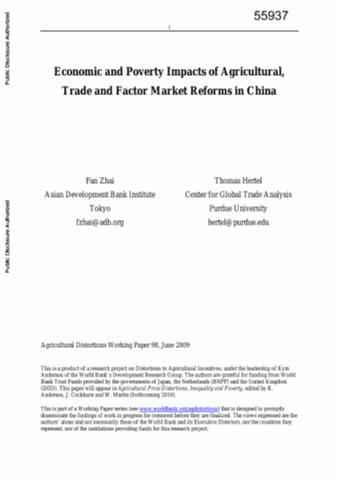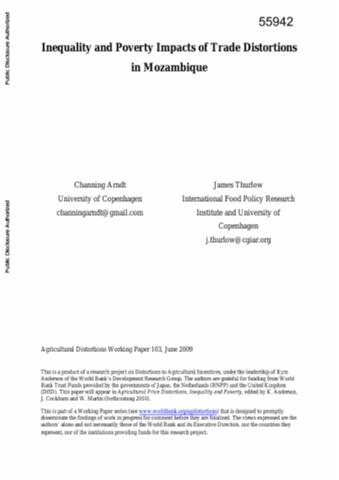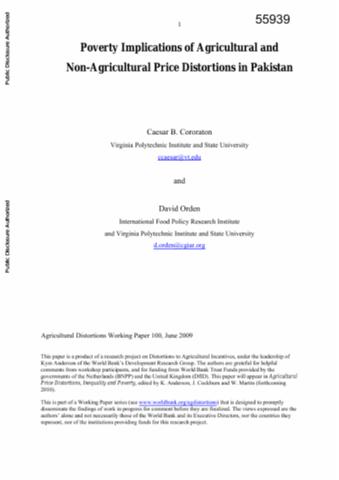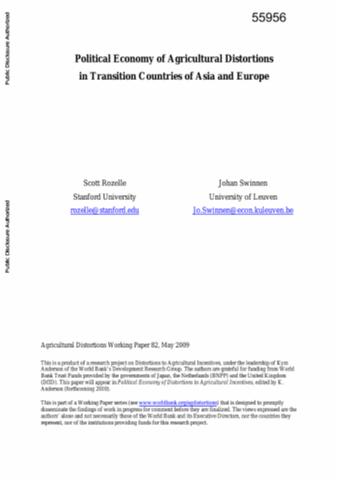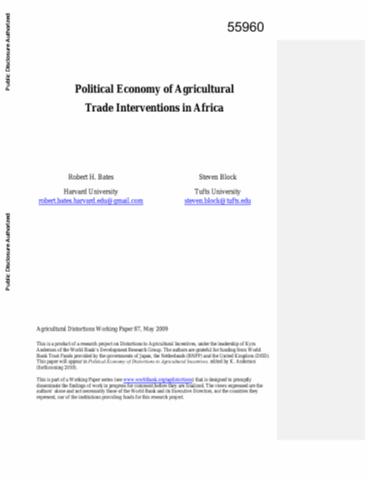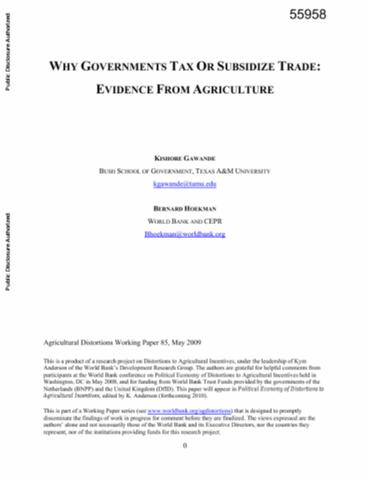Agricultural Price Distortions, Inequality, and Poverty
Reforms in recent decades have sharply reduced the distortions affecting agriculture in developing countries, particularly by cuts to agricultural export taxes and by some reductions in government assistance to agriculture in high-income countries, but international trade in farm products continues to be far more distorted than trade in nonfarm goods. This paper summarizes a series of empirical studies that focus on the effects of the remaining distortions to world merchandise trade for poverty and inequality, especially in developing countries.

